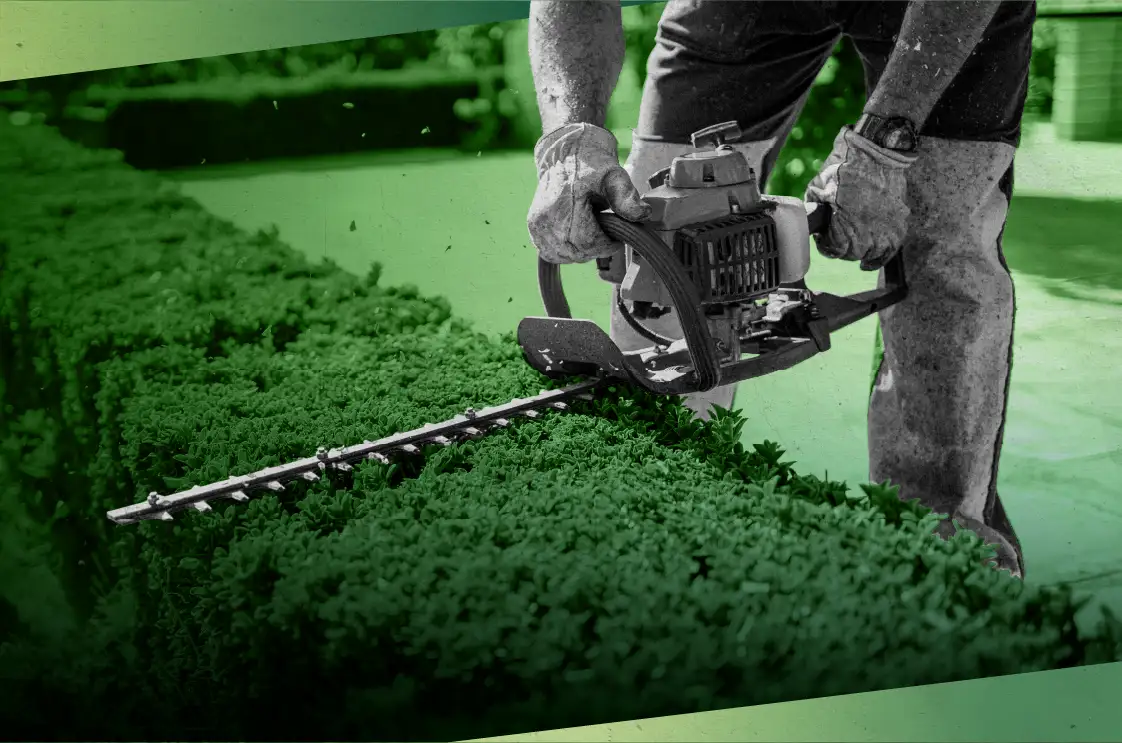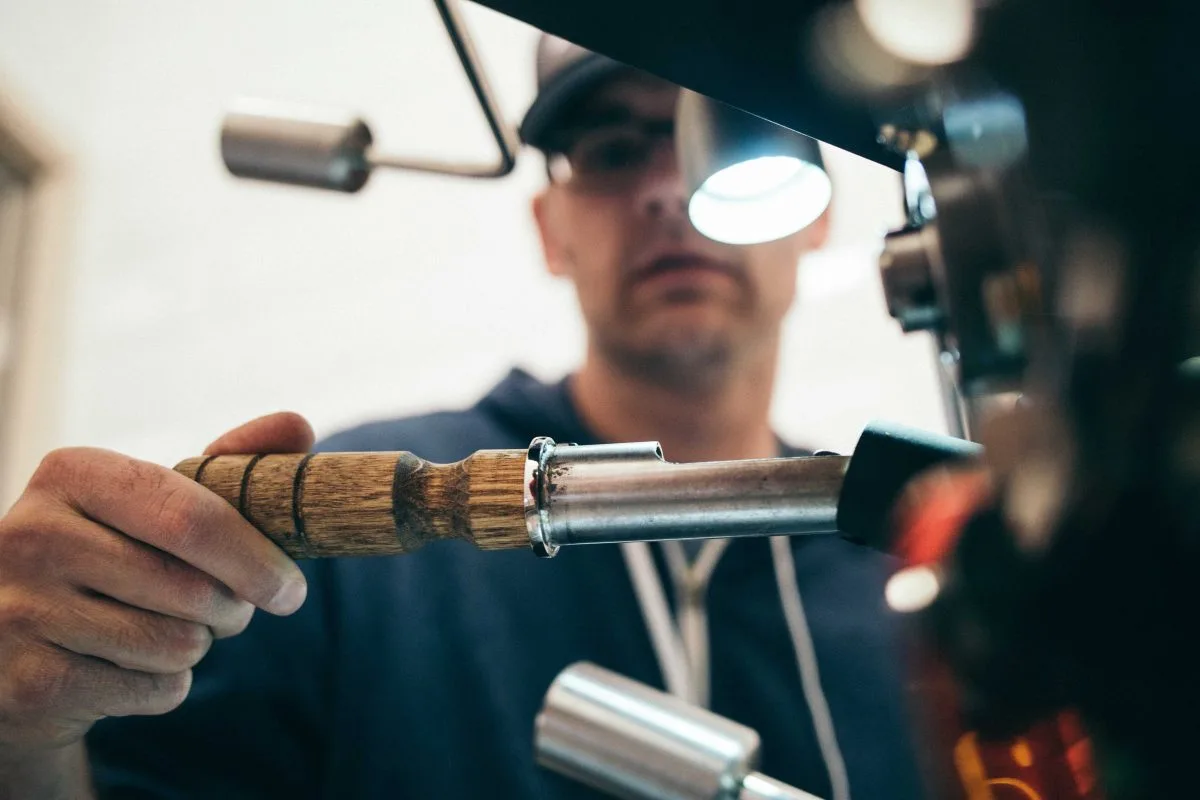
We’re going to explore the pros and cons of cordless electric lawn care equipment. Be honest. What were your first thoughts when you read “cordless electric lawn care equipment?”
If you’re like many, your first thoughts were probably something like, “Next article.” But you might be surprised at how far electric battery-operated equipment has come in recent years and how far they can take you!
Electric lawn care equipment at a glance
Electric lawn care equipment has taken the consumer market by storm in recent years. And for good reason! Actually, for a few. One obvious reason is, no doubt, the skyrocketing prices of fuel. Along with saving on gas and oil, homeowners are saving on maintenance costs too. Electric mowers have fewer moving parts and require less maintenance in general.
Grandview Research reported that the electric lawn care market (consumer and commercial) is expected to grow 5.4% each year from 2023 to 2030.
The commercial sector is already seeing jumps in electric lawn mowers thanks to expanding green spaces like golf courses, parks, and expansive lawns. These larger outdoor spaces often require powerful and efficient equipment to maintain their aesthetic appeal, and electric lawn mowers are proving they’re up to the job, meeting both performance and sustainability needs. Not only are electric mowers free of harmful exhaust emissions, but they’re less noisy too! Those 7:00 a.m. starts won’t tick off the neighbors as much!
And we’re not just talking about push mowers and weed eaters either. You can now get zero-turn mowers, tractors, trimmers, blowers, chainsaws, tillers, and more! But are they right for you? Let’s look at a few of the pros and cons of an electric fleet for your lawn and landscaping business.
The pros of electric lawn care equipment
1. You can save money.
If you’re ready for a new mower or need to buy another one, this is a big selling point. On average, an electric mower will cost less than a gas mower with similar features.
Electric models start as low as around $100. That’s the cheapest we could find! But most push mowers should cost anywhere from $250 to $550. Now compare that to gas-powered mowers that start at around $200 to $250. The most popular brands will run you anywhere from $400 to $1,000. Gas riding mowers can get up to the tens of thousands. In fact, the Toro 7500 G-Series Z Master zero turn is just under $40,000! (But who wouldn’t want that beast?)
And let’s not forget about the price of oil and gas and those frequent trips to the gas station.
2. You’ll be more quiet.
It’s a truth we’ve lived with for years. Landscaping is loud. Standard gas-powered mowers usually operate around 95 decibels. To put that in perspective, that’s as loud as that Harley revving its engine next to you at the light.
In contrast, electric mowers will max out at an average of 75 decibels. That’s like your washing machine during the spin cycle. If you have a lot of residential clients, this makes an electric mower an attractive option.
3. They’re easier to use and fix.
No one knows this better than you. Gas-powered mowers break down. We don’t even need to mention trigger words like “carburetors,” “drive belts,” or “ignition coils.” They also require frequent maintenance. This includes replacing spark plugs, oil filters, and air filters. Electric mower components require less regular servicing since there are way fewer parts. That means more savings over the long haul.
Since most electric mowers are relatively lightweight, they’re easier to navigate across lawns and around tight corners. The John Deere Z370R Z-Trak electric zero-turn mower with a 48-inch deck weighs 540 pounds. Their gas-powered Z330R ZTrak with a 48-inch deck comes in at 611 pounds.
4. They’re better for the planet.
This pro is two-fold. You can help the environment, and you can use it as a selling point. Gas-powered engines produce a surprising amount of carbon emissions and a nasty amount of pollutants.
According to data from the U.S. Environmental Protection Agency, “Lawn and garden equipment in Oregon emitted an estimated 374 tons of harmful ‘fine particulate’ air pollution in 2020 – an amount equivalent to the pollution emitted by 4 million typical cars over the course of a year.” Ouch. And it’s not just Oregon!
Electric lawn equipment is cleaner and more energy-efficient. Less racket and less obnoxious fumes is a win in any book.
The cons of electric lawn care equipment
1. You might need to call for backup.
You want to start a job and finish it without having to stop. That might not be possible with an electric lawn mower, especially if it’s more than a few acres. Though some zero turns with AH batteries can run up to 2.5 hours on one charge, keeping a few extra charged batteries on hand would still be wise. Batteries run from $18 for walk-behind mowers to about $80 for riding mowers at Home Depot.
2. They’re not as powerful.
You measure lawn mower power by torque rating. That gives you the driving force behind the blade’s rotation. A higher torque rating means a more powerful chopping motion. Lower ratings mean the mower is more likely to get stuck or caught up on clumps of taller grass.
The average electric lawn mower offers somewhere between 2 and 2.5 pound-feet of torque. That’s pretty low compared to the average of a gas-powered mower, which is between 4.5 and 8.75 pound-feet. Gas-powered mowers make it about three times easier to tackle the tougher challenges.
3. Replacing equipment can be expensive.
Electric landscaping mowers and blowers can cost up to three times as much as their gas counterparts. That said, they’ll still pay off in the long run when you consider all the trips to the gas station you’ll avoid.
It’s not such a clean-cut decision!
As the landscape of landscaping equipment continues to change, you’ve got some decisions to make. Once you’ve weighed the pros and cons, you’ll have a better idea of what your business needs. Many lawn and landscaping businesses may find a healthy mix of using both gas and electric. But electric lawn equipment just might be the answer… at least for those smaller jobs. Save on operating costs and quiet things down a bit where you can!
Ready to pull the plug on gas and try electric?
If you’re ready to change out equipment or add to your fleet, consider Stripe Capital business financing. Buy the smart way! Stripe Capital offers flexible repayment options. You can also get the funds fast after approval… as little as one day in many cases. Plus, the online application is super simple. Learn more about how Stripe Capital can help give your lawn and landscaping business a boost.
Loans are issued by Celtic Bank. All loans subject to credit approval.






